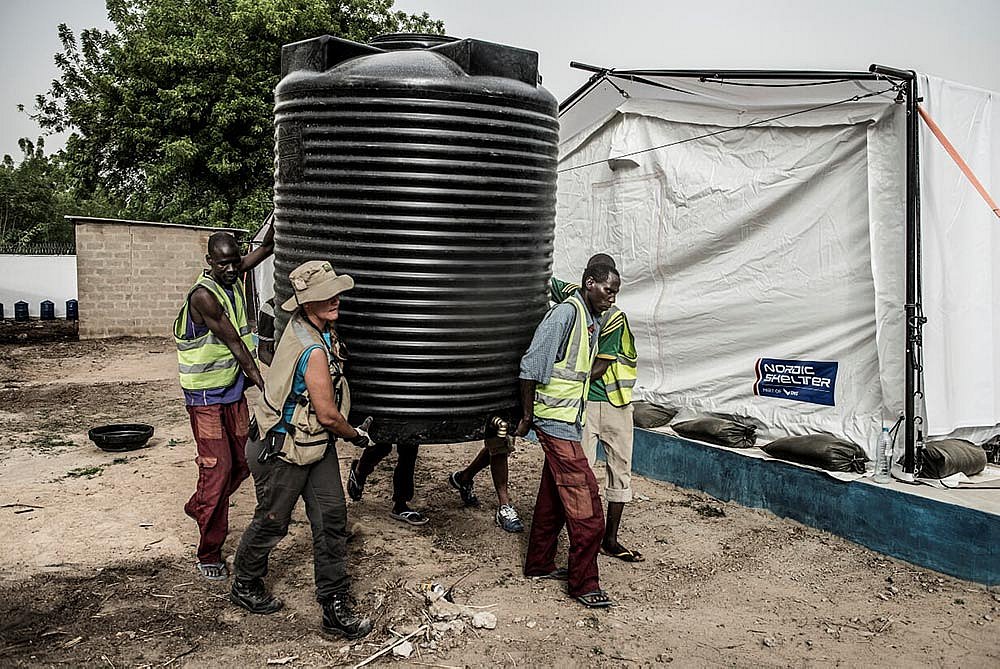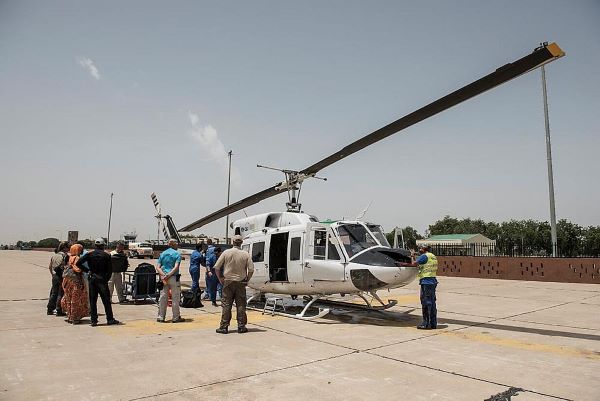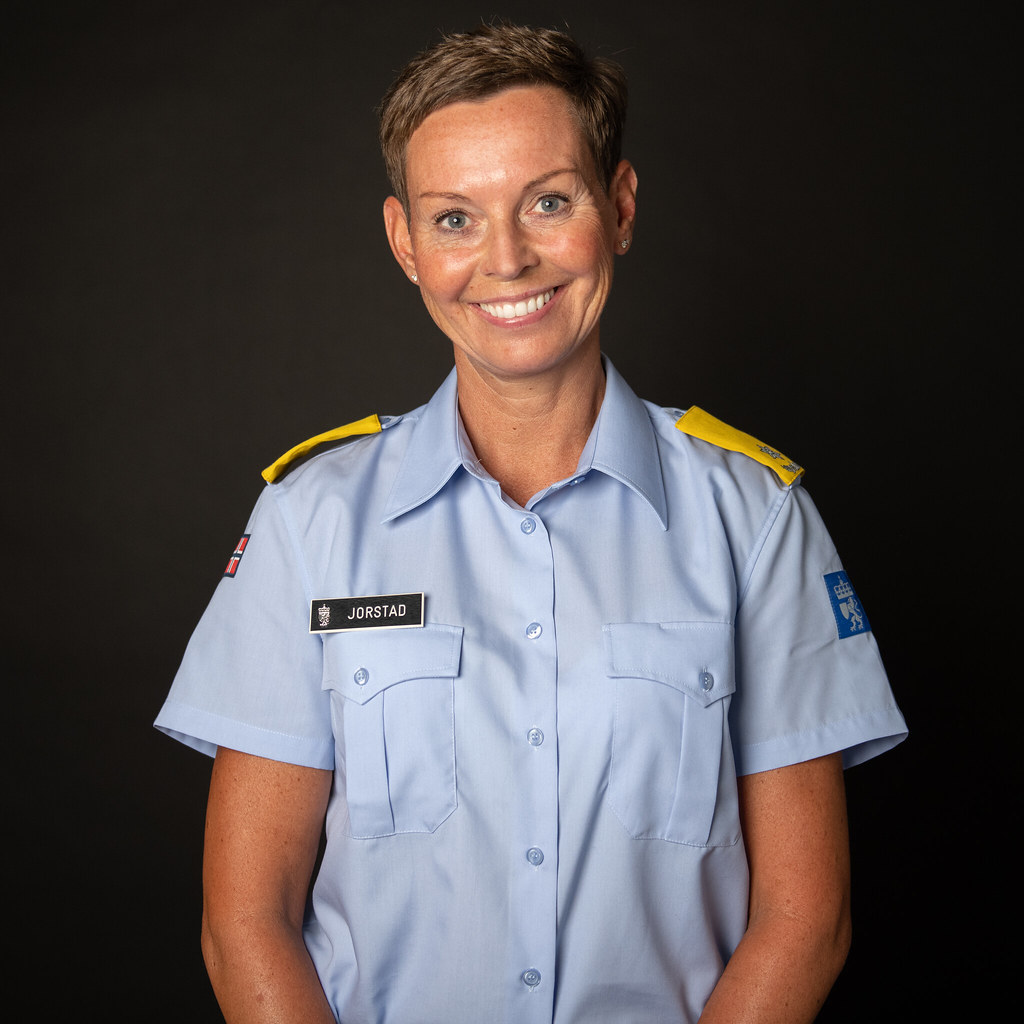Uniting efforts for global relief
The International Humanitarian Partnership (IHP) brings together European disaster response agencies to strengthen global emergency relief efforts by deploying expertise and providing logistical support. By "helping the helper," we create a lasting impact on humanitarian operations worldwide.

IHP serves as a platform for international cooperation, pooling resources such as equipment and staff to enhance the collective response of its member organisations.

The primary aim is to bolster humanitarian efforts, including those of the UN, other humanitarian actors, and the EU, in addressing both natural disasters and complex emergencies. This is achieved through providing operational, technical, and financial support to multilateral organizations engaged in global humanitarian assistance.
Voluntary cooperation
Founded in 1995
8 Members
8 Partners
60+ UNDAC Missions supported
110+ Operations
250+ Support Modules deployed
Since its inception in 1995, IHP has exemplified the effectiveness of voluntary multinational cooperation among governmental bodies involved in humanitarian assistance. Grounded in shared values and a problem-solving mindset, the partnership operates without binding agreements among member countries, instead opting for a network structure overseen by a rotating chair system. These elements underscore IHP as a model of timely, effective, and appropriate humanitarian response.
Goal and Objectives
IHP’s overarching goal is to strengthen emergency response efforts by supporting operational actors in humanitarian assistance and coordination, ultimately aiming to save lives and mitigate the impact of conflicts and natural disasters.

Enhancing
operational efficiency and effectiveness in emergency situations
Demonstrating
practical donor government cooperation and coordination.
Improving
emergency preparedness through capacity building, training, and exercises.
Boosting
operational capacity during emergencies by deploying specialized surge capacity, including experts and equipment, to multilateral organizations.
Facilitating
coordination of humanitarian assistance, promoting information sharing, and fostering cooperation among various actors involved in emergencies
Principles

Effectiveness and efficiency
The partnership aims to improve humanitarian services by minimizing competition and avoiding duplication of efforts. IHP’s primary goal is to enhance the efficiency and cost-effectiveness of operations through shared resources and expertise pooling.

Synergy
Collaboration empowers members to offer support that would be beyond their individual capacities. Synergy is achieved through joint deployments: one member contributes staff, another provides equipment, and a third organizes airlifts.

Dual use
IHP members’ assets fulfill a dual purpose: they serve within the domestic emergency management system and act as preparedness capacity for the international emergency system, which in return provides cost-effective readiness that can be deployed both domestically and internationally.

Autonomy
Since its inception, IHP has operated as an informal, non-binding cooperation, respecting the autonomy of its individual members and acknowledging the limitations of their mandates. Consequently, membership in IHP does not impose restrictions on members’ ability to pursue individual responses and initiatives.
Norway’s Priorities for its 2025-2026 IHP Chairmanship
Strengthen how IHP coordinates, prepares for, and delivers operational support. This includes improving internal clarity, updating routines, and reinforcing the structures that strengthen deployments.
We want to contribute to:
- Reviewing current systems for operational response and the mission request process
- Strengthen coordination between partners to support timely and coherent responses
- Ensure a shared, holistic understanding and a coherent approach among partners
To reach this objective we want to focus on:
- Developing the service definition, so it will be clear, realistic, accessible, and easy to navigate. What can IHP deliver?
- Give special focus on safety and security, integrating security in IHP’s work. An active and integrated IHP security network will contribute to safe and effective IHP operations, including in challenging contexts.
This requires collective efforts of all IHP members by shared responsibility, but at the same time keeping a realistic and sustainable level of ambition, bearing in mind that IHP’s members are different, engaging also in national preparedness and in other important international work, with limited resources. The IHP working groups will play a vital role in reaching the goals.
Luxembourg’s IHP Chairmanship team



Norway’s IHP Chairmanship team
Elin Heier Jorstad
IHP chairperson
Civil Defence Commander
Oppland Civil Defence District, Norway

Stine Ermesjø
national IHP presidency team
International adviser, the Preparedness Section
The Norwegian Directorate for Civil Protection (DSB) / The Norwegian Civil Defence

Stig Rune Pedersen
national IHP presidency team
International adviser, the Preparedness Section
The Norwegian Directorate for Civil Protection (DSB) / The Norwegian Civil Defence
